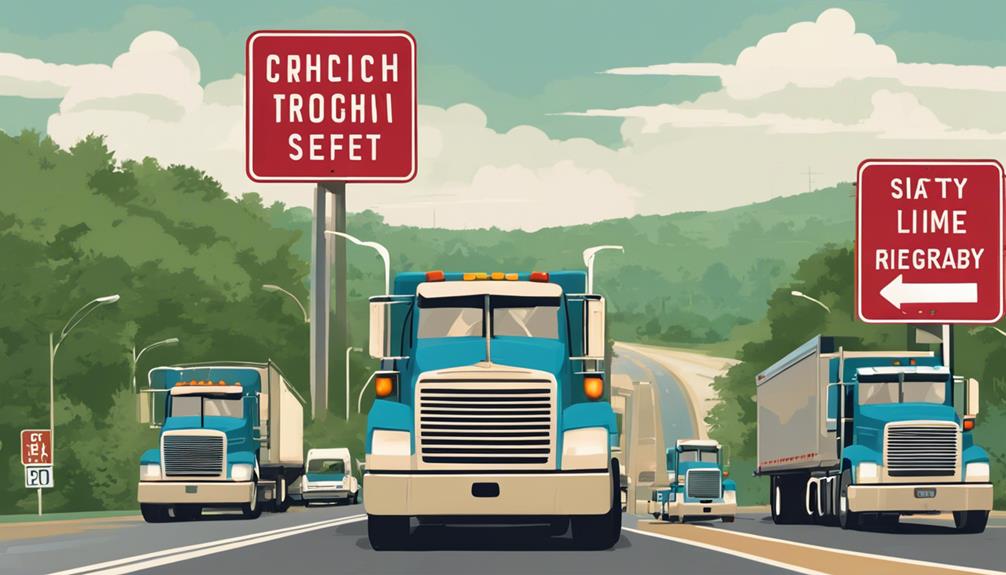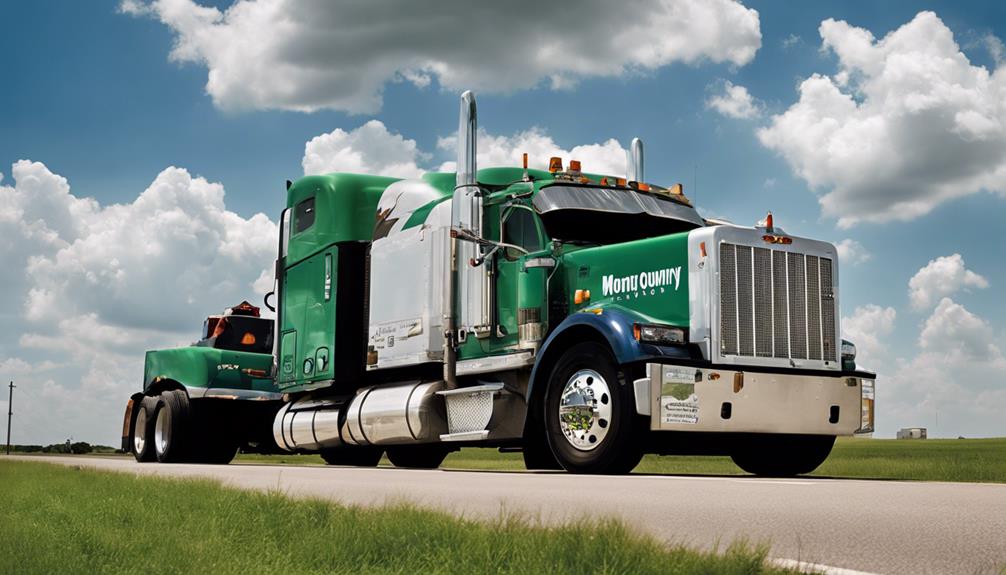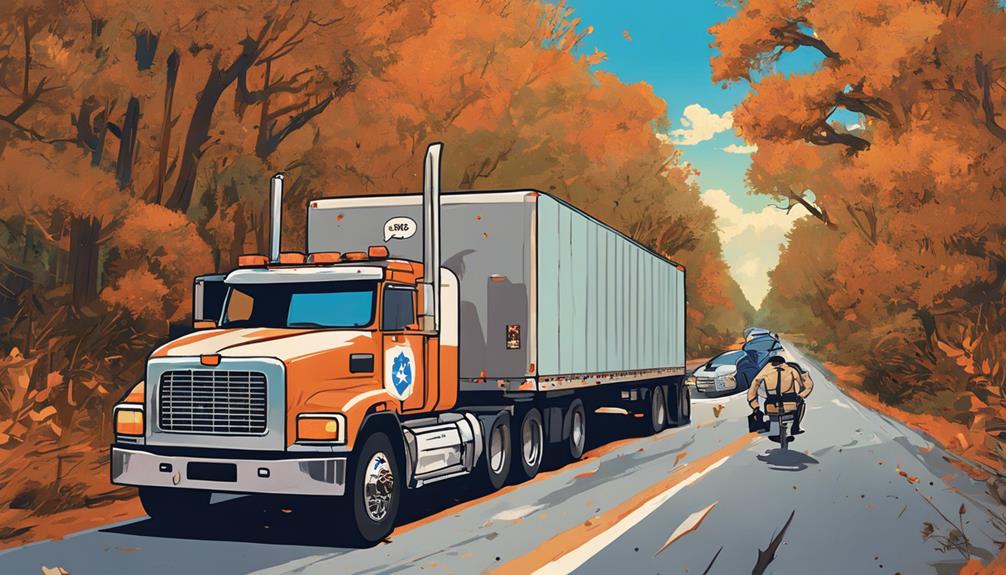If you're operating an overweight or oversize vehicle in Montgomery County, TX, you need to understand the importance of securing an appropriate bond. This bond isn't just a formality; it acts as a financial safety net that ensures compliance with local regulations. Without it, you could face significant penalties or complications down the line. But what steps do you need to take to obtain this bond, and what costs are involved? Let's explore these critical aspects that could impact your operations.
Understanding Overweight Vehicle Regulations

When it comes to transporting goods, understanding overweight vehicle regulations is crucial for any driver. These regulations help maintain road safety and protect infrastructure, so knowing them is key to avoiding fines and penalties.
You'll typically find weight limits set by state and local authorities, which can vary depending on the type of road and vehicle. Before heading out, check the weight of your load against the legal limits.
Most states allow a maximum of 80,000 pounds for standard commercial vehicles on interstate highways. However, local roads may impose stricter limits, so it's vital to research the specific regulations in Montgomery County, TX.
If your vehicle exceeds these limits, you may need to apply for special permits. These permits allow you to legally transport your overweight load but often come with restrictions and additional fees.
Keep in mind that operating an overweight vehicle without the proper permits can lead to hefty fines, vehicle impoundment, and potential safety hazards.
Importance of an Oversize Vehicle Bond
Why is having an oversize vehicle bond essential for your transport operations? It's crucial for several reasons.
First, it demonstrates your financial responsibility. This bond acts as a safeguard, ensuring that you can cover potential damages or fines associated with operating oversized vehicles. If something goes wrong, the bond provides a financial cushion, protecting both you and the public.
Second, many jurisdictions require this bond for compliance with local regulations. Without it, you might face hefty fines or even shutdowns, jeopardizing your business's reputation and finances. Having the bond means you're adhering to the law, which can help you avoid legal complications.
Moreover, it enhances your credibility with clients and partners. When you possess an oversize vehicle bond, you're showing that you're serious about your operations and committed to maintaining safety standards. This can make you more attractive to potential clients who seek reliable transport services.
Eligibility for a Vehicle Bond

To secure an oversize vehicle bond, you need to meet certain eligibility requirements set by bonding companies and local authorities.
First, you must be a licensed driver with a valid driver's license relevant to the vehicle class you'll operate. Demonstrating a clean driving record is crucial, as many bonding companies will look for evidence of responsible driving behavior.
Next, you should provide proof of ownership of the vehicle for which you're seeking the bond. This may include registration documents or titles. Additionally, some bonding companies may require you to show proof of insurance that covers the vehicle's size and weight. This ensures that you have adequate financial backing in case of an incident.
Your financial stability also plays a significant role in eligibility. Bonding companies typically evaluate your credit history and financial records to assess your risk level. Be prepared to share relevant documentation, like bank statements or income verification.
Lastly, be aware that certain vehicles might've specific criteria based on their weight or intended use. Understanding these requirements can help you navigate the bonding process more efficiently.
Steps to Obtain a Bond
Securing a vehicle bond involves a series of straightforward steps that you can follow to simplify the process.
First, gather all necessary documentation, including proof of ownership, your vehicle's specifications, and any required identification. This will help streamline your application. Additionally, understanding the specific requirements for vehicle bonds in your region, such as those related to contract bonds, can ensure a smoother experience.
Next, reach out to a licensed surety company or agent who specializes in vehicle bonds. They'll guide you through the entire process and provide you with the necessary forms.
Complete the application accurately, making sure all details match your documentation.
Once you've submitted your application, the surety company will assess your situation. They may require additional information or conduct a background check.
After their review, you'll receive a quote for the bond amount and terms.
If you agree to the terms, pay the required premium, and the surety will issue your bond. Be sure to keep a copy of the bond, as you'll need to present it to the relevant authorities.
Costs Associated With the Bond

Understanding the costs associated with a vehicle bond is crucial for budgeting your expenses. When you apply for an overweight or oversize vehicle bond in Montgomery County, you'll encounter several financial aspects to consider.
First, you'll need to pay a premium to the bonding company, which typically ranges from 1% to 15% of the bond amount. This percentage can vary based on factors like your credit history and the specifics of your vehicle. Additionally, factors such as the bond's requirements and purpose can influence the overall cost and complexity of obtaining the bond.
In addition to the premium, keep in mind that there may be administrative fees charged by the bonding company, which can add to your overall costs. You should also account for any potential inspections or permits required by the county, as these can incur additional expenses.
Moreover, if you're financing your bond through a lender, interest rates can come into play, affecting your total repayment amount over time.
Always read the fine print and ask about any hidden fees that could arise. By understanding these costs upfront, you can plan accordingly and avoid unexpected financial surprises when securing your vehicle bond in Montgomery County.
Duration and Renewal Process
Once you've navigated the costs associated with obtaining a vehicle bond, it's important to consider how long the bond lasts and what the renewal process entails. Typically, the bond is valid for one year from the date of issuance. This means you'll need to keep track of its expiration to avoid lapses in coverage.
When it comes time to renew, you'll want to start the process well in advance. Most providers recommend initiating the renewal at least 30 days before the bond expires. This gives you ample time to gather any necessary documentation and ensure everything is in order.
To renew your bond, you'll likely need to submit a renewal application along with any required fees. In some cases, you might be asked to provide updated information about your vehicle or business operations. It's a good idea to reach out to your bond provider for specific requirements, as they can vary.
Once you've completed the renewal process and paid any associated fees, you'll receive a new bond that extends your coverage for another year. Keeping up with this process ensures you remain compliant and protected while operating your vehicle.
Consequences of Non-Compliance

Non-compliance with vehicle bond regulations can lead to serious repercussions. If you fail to secure the necessary bond for your overweight or oversize vehicle, you risk facing hefty fines and penalties. These financial consequences can escalate quickly, impacting your budget and business operations.
Additionally, operating without a valid bond may result in your vehicle being impounded, causing further delays and costs. You could also face legal action, which might include lawsuits from affected parties or regulatory agencies. This can tarnish your reputation, making it harder to secure contracts or partnerships in the future.
In some cases, repeated non-compliance can lead to the suspension of your operating privileges, putting a significant halt to your business activities. Moreover, insurance companies may view non-compliance as a red flag, which could lead to higher premiums or difficulty obtaining coverage in the first place.
It's crucial to understand that these consequences extend beyond immediate financial penalties; they can disrupt your operations and long-term viability. To avoid these issues, ensure you're familiar with the regulations and maintain compliance with the vehicle bond requirements at all times.
Tips for Smooth Operations
Ensuring smooth operations hinges on staying organized and proactive in your approach to vehicle bond regulations.
First, familiarize yourself with the specific requirements for overweight or oversize vehicles in Montgomery County. Understanding the nuances of Louisiana Surety Bonds can help you avoid unnecessary delays or complications.
Next, keep accurate records of all your vehicle specifications, permits, and bond documents. Having everything in one place allows for quick access when needed, making inspections or inquiries much easier.
Also, make a checklist of all necessary documents and ensure you have them ready before hitting the road.
Regularly communicate with local authorities to stay updated on any changes in regulations. This proactive approach can save you from potential penalties.
Additionally, establish a routine for vehicle maintenance, ensuring your truck is always in good condition, as this can also prevent operational hiccups.
Lastly, consider joining a local trucking association or network. Connecting with fellow operators can provide valuable insights and tips.
Conclusion
In Montgomery County, securing an overweight or oversize vehicle bond is essential for staying compliant and protecting your business. By understanding the regulations and following the necessary steps to obtain your bond, you'll not only safeguard against potential fines but also boost your credibility. Remember, maintaining this bond is crucial for smooth operations and avoiding the consequences of non-compliance. Stay informed and proactive to ensure your vehicle operations run without a hitch.


